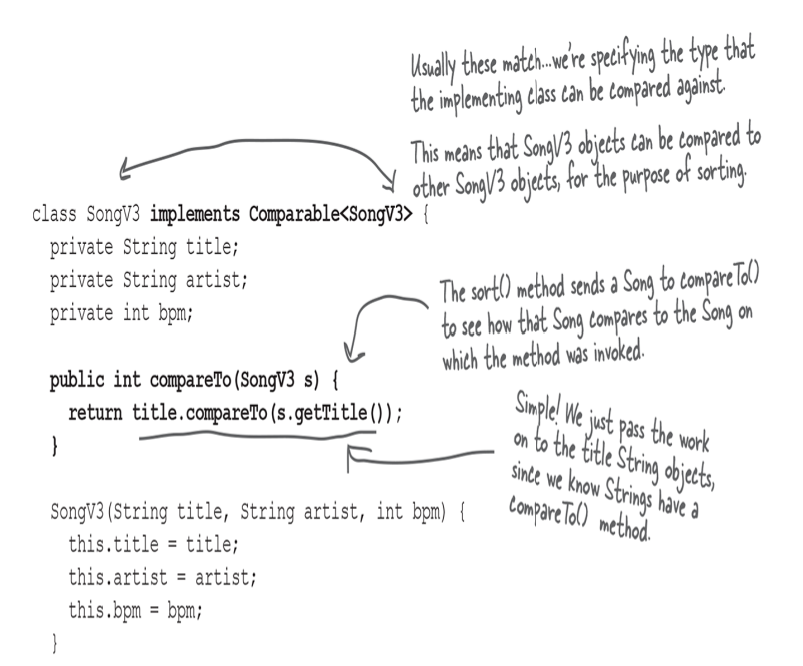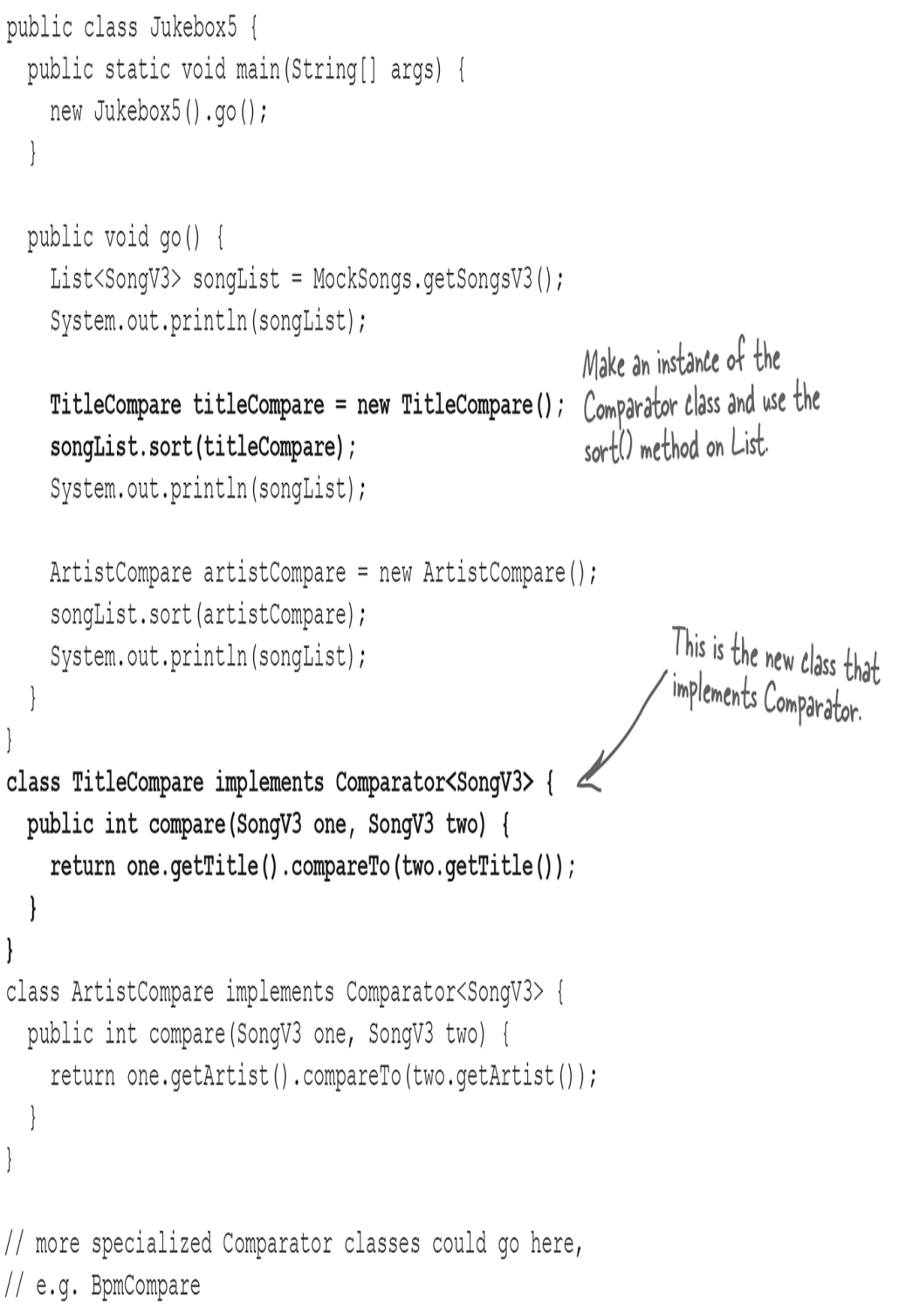Comparable, Comparator generics and Intro to Lambda
Java
Intro
Let’s say we want to sort a list of Song objects using Collections.sort() method. It definitely works for list of Strings but will it work for Song objects? NO!

The sort method only takes list of Comparable objects. Song is not a subtype of Comparable so you cannot sort it. Not yet…
A note on T extends Comparable
A note is that String does not Extend comparable. It implements it.
public final class String
implements java.io.Serializable, Comparable<String>,
CharSequence {
Comparable is an interface. Why does it say
if Comparable is an interface? Shouldn't it be implements?
In generics, extends mean both extends OR implements.
The Java engineers had to give you a way to put a constraint on a parameterized type so that you can restrict it to, say, only subclasses of Animal. But you also need to constrain a type to allow only classes that implement a particular interface. So here’s a situation where we need one kind of syntax to work for both situations—inheritance and implementation. In other words, that works for both extends and implements.
And the winning word was…extends. But it really means “IS-A” and works regardless of whether the type on the right is an interface or a class.
Comparable sort()
We can pass the ArrayList
public interface Comparable<T>{
int compareTo(T o);
}
compareTo returns some integer if this object is greater or less than a specified object. But how do you determine this size? Which song is greater or less? How do you determine this? Until you do this, you cannot implement this interface.
We can compare by title of song for example.

##sort() method on Collections that takes a Comparator The previous solution with Comparable element worked only for comparing via 1 field. What if we want to sort via title and artist? Use a custom Comparator!
A Comparable element in a list can compare itself to another of its own type in only one way, using its compareTo() method. But a Comparator is external to the element type you’re comparing—it’s a separate class. So you can make as many of these as you like! Want to compare songs by artist? Make an ArtistComparator. Sort by beats per minute? Make a BpmComparator.
public interface Comparator<T>{
int compare (T o1, T o2);
}

As you see, a lot of repetitive code goes into this. A possible solution is inner class/ argument-defined anonymous inner class.
songList.sort(new Comparator<SongV3>() {
public int compare(SongV3 one, SongV3 two) {
return one.getTitle().compareTo(two.getTitle());
}
});
But still, there is a lot of code for just wanting to sort by title.
Solution: Lambda!!! Look at my next post
Differentiating comparable and comparator
Invoking the Collections.sort(List list) method means the list element’s compareTo() method determines the order. The elements in the list MUST implement the Comparable interface.
Invoking List.sort(Comparator c) or Collections.sort(List list, Comparator c) means the Comparator’s compare() method will be used. That means the elements in the list do NOT need to implement the Comparable interface, but if they do, the list element’s compareTo() method will NOT be called.
If you pass a Comparator to the sort() method, the sort order is determined by the Comparator.
If you don’t pass a Comparator and the element is Comparable, the sort order is determined by the element’s compareTo() method.